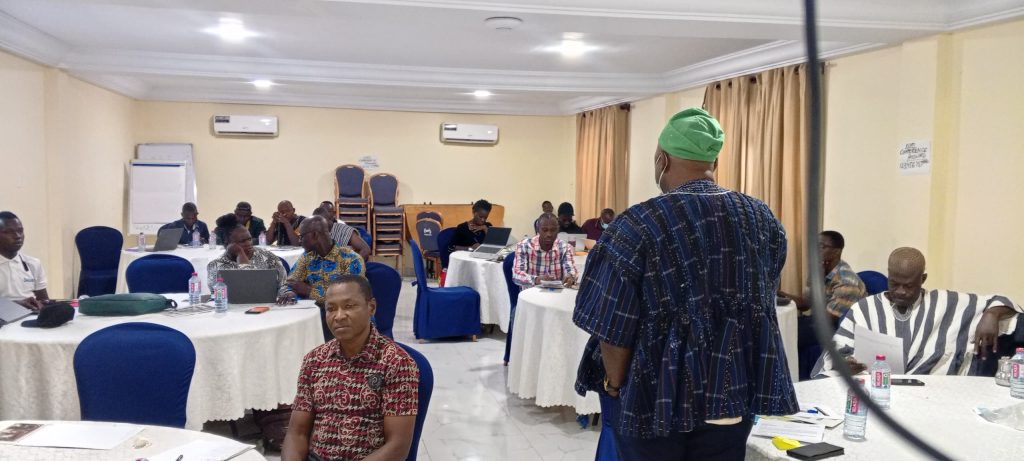By Anthony Adongo Apubeo
Bolgatanga, Dec 15, GNA – Safe water in the Bongo District of the Upper East Region is not fairly distributed, creating significant inequalities among communities, a baseline survey conducted by WaterAid Ghana, a Water, Sanitation and Hygiene (WASH) focused organisation, has shown.
The study also acknowledged that although safe water coverage in the district was 84 percent, there were still some communities without water, creating a situation of water crisis.
“Even in the midst of this percentage of 84 percent for water, we have gotten significant challenges with fluoride, which means not all the boreholes and the water sources are yielding sufficient water 24 hours for the people.”
Mr Ibrahim Musah, Head of Strategy, Policy and Campaigns, WaterAid Ghana, who revealed this in Bolgatanga during a validation workshop, said the research was part of WaterAid Ghana’s country strategy to improve access to water and WASH services in the area.
WaterAid Ghana is currently implementing a country strategic plan (2023-2028) to promote access to WASH services and seeks to reach about one million people directly with sustainable, safe and climate resilient WASH and behaviour in 10 districts in Upper East and Upper West Regions.
However, due to the high fluoride content in Bongo, the strategy has a specific focus in the area to promote access to potable and sustainable WASH services and become a learning curve for lessons to be replicated and for other districts to emulate.
The findings which were validated by various stakeholders in the District such as the Bongo District Assembly, Ghana Education Service, Ghana Health Service, traditional authorities and community leaders, among others.
The move was to enable WaterAid Ghana work effectively and with informed data with the relevant stakeholders to implement interventions to address the challenges and improve access to water and WASH services to underserved communities.

Mr Musah explained that there were many areas in the district which had serious water challenges and required more investment to improve access and called for collective efforts from the stakeholders.
“We realise from the data that Bongo District has as high as 80 per cent open defecation rate, which is huge, which means that people defecate in the open, and that has impact on water bodies and water sources.
And then hygiene practices are just around 50 percent, which is not bad, but it also needs significant improvement. We are also witnessing from the data that apart from the age-old fluoride issue, arsenic levels are also coming up”, he added.
Madam Josephine Manu, Deputy Director at the Ministry of Sanitation and Water Resources, commended WaterAid Ghana and its partners for the investment and urged the stakeholders in Bongo to work together to address the WASH gaps identified.
Alhaji Ibrahim Habila, Coordinating Director, Bongo District Assembly, noted that the high fluoride issue in the district was challenging and it required investment and noted that the Assembly was committed to working with development partners to resolve the problem.
Naba Baba Salifu Atamale Lemyaarum, Paramount Chief of the Bongo Traditional Area, thanked WaterAid Ghana for the investment in the district over the years, and added that it had contributed to the improvement in the health, education and livelihoods of the residents.
He pledged his support to the implementation of any intervention that would lead to addressing the water challenges in the district.
GNA